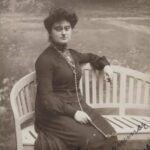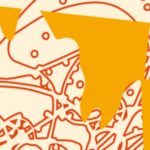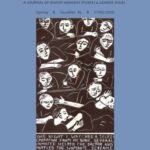 Dóra Fedeles-Czeferner (HUN REN Research Centre for the Humanities, Inst. of History) and Iván Bertényi (Inst. für Ungarische Geschichtsforschung in Wien, Collegium Hungaricum Wien)
Dóra Fedeles-Czeferner (HUN REN Research Centre for the Humanities, Inst. of History) and Iván Bertényi (Inst. für Ungarische Geschichtsforschung in Wien, Collegium Hungaricum Wien)
Time: 11.-12.11.2024
Venue: Collegium Hungaricum Wien
Proposals by: 30.04.2024
This call for papers aims to promote scholarly collaboration, resulting in a large-scale international research project on women’s activism in the Austro-Hungarian Monarchy and the successor states between 1848 and 1945. The primary aim of the planned project is to reconstruct the history and the international network of contacts of Austrian-German, Hungarian, Slovakian, Czech and Moravian, Polish, Italian, Slovenian, Croatian, Serbian, Ruthenian, and Romanian women’s associations of different profiles as well as to study the activism of their leaders through a longer period of time and over different political regimes. The territory of the Austro-Hungarian Monarchy would be considered as a transnational laboratory. Thus, within the frames of this workshop we aim to provide a forum for conversation and to connect researchers to facilitate closer cooperation and further research in this field.
Contributions, which have to be based on original research with primary and secondary sources, should transgress state borders which historically cut different activists and activisms apart from each other. They have to adopt an interdisciplinary approach with examining the relationship between local, national, and transnational/international dynamics of women’s activism in the territory of the Austro-Hungarian Monarchy and in its successor states. Proposals might explore questions/subject-matters such as the followings:
– In what terms can the 1840s be interpreted as the genesis of women’s activism in the different regions of the Monarchy? How did the first groups of women accommodate their traditional roles as wives and mothers and became active as organizers and raised their voices for the emancipation of women? How did they connect with each other?
– How did the women of the next generations made efforts to change the existing social relations? Who were exactly these women with progressive and sometimes radical ideas? How were they involved in the women’s movements? Read more … (PDF)

 ifk. Internationales Forschungszentrum Kulturwissenschaften, Kunstuniv. Linz in Wien
ifk. Internationales Forschungszentrum Kulturwissenschaften, Kunstuniv. Linz in Wien  Ringvorlesung des Referats Genderforschung an der Univ. Wien; Organisation: Tomi Adeaga
Ringvorlesung des Referats Genderforschung an der Univ. Wien; Organisation: Tomi Adeaga  Vortragsreihe „biografiA – Neue Ergebnisse der Frauenbiografieforschung“
Vortragsreihe „biografiA – Neue Ergebnisse der Frauenbiografieforschung“  Käte Hamburger Kollegs global dis:connect (LMU München) in Koop. mit dem Literaturhaus Wien – Österreichische Exilbibliothek
Käte Hamburger Kollegs global dis:connect (LMU München) in Koop. mit dem Literaturhaus Wien – Österreichische Exilbibliothek  Nashim: A Journal of Jewish Women’s Studies & Gender Issues
Nashim: A Journal of Jewish Women’s Studies & Gender Issues  Wienbibliothek im Rathaus
Wienbibliothek im Rathaus